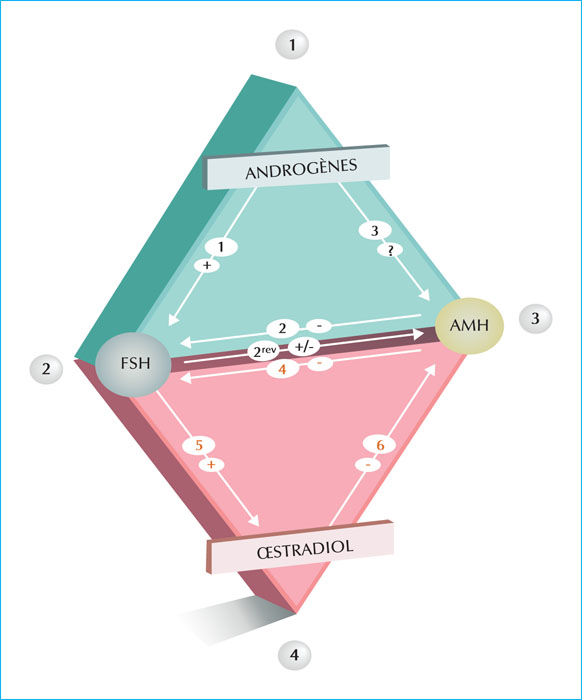Médecine de la Reproduction
MENURole of anti-müllerian hormone in the pathogenesis of polycystic ovary syndrome Volume 23, issue 3, Juillet-Août-Septembre 2021
Figures
1 Faculté de médecine, université de Lille, France
2 Inserm, laboratoire de développement et plasticité du cerveau neuroendocrine, centre de recherche Jean-Pierre Aubert, Lille, France
3 CHU Lille, Institut de biologie de la reproduction-spermiologie Cecos, hôpital Jeanne de Flandre, Lille, France
4 CHU Lille, unité fonctionnelle de gynécologie endocrinienne, service de gynécologie médicale, orthogénie et sexologie, hôpital Jeanne de Flandre, Lille, France
5 CHU Lille, service d’assistance médicale à la procréation et préservation de la fertilité, hôpital Jeanne de Flandre, France
6 Université de Lille, EA 4308 gamétogenèse et qualité des gamètes, Lille, France
* Tirés à part
- Key words: anti-müllerian hormone, polycystic ovary syndrome, androgens, follicle, FSH, anovulation, GnRH, aromatase
- DOI : 10.1684/mte.2021.0856
- Page(s) : 167-76
- Published in: 2021
Besides its interest for diagnosis, the finding of an elevated serum AMH level in PCOS has open major pathophysiological issues. This review addresses the three most important issues : 1) the role of AMH in the disturbed folliculogenesis of PCOS ; 2) the role of AMH in the gonadotropin dysregulation of PCOS and 3) the role of AMH in the trans-generational transmission of PCOS. For each of those issues, the clinical and experimental evidences currently available are discussed and pathophysiological hypothesis are proposed.

